It’s been awhile and I’ve had come cool adventures since I’ve last sat down to write. Thanks for sticking around and encouraging me to post again!
I’m currently sitting in the shade in Bariloche, Argentina. I am alone again after six weeks of forming a new river family, the kind that comes crashing together for a short time, gets stoked and scared and tired together, eats and rests and works with each other, and then scatters again. I already miss them!
Kayakimün
I said goodbye to my family in Santiago on my 23rd birthday and flew south to Temuco. I met with a new friend I’ve been in touch with online for a year at the airport and we caught a bus north and a ride with more new friends east. I told her it was my birthday an hour into the bus ride and was touched by how excited she was and how she couldn’t wait to tell our friends who picked us up from the station, who then immediately burst into Spanish and English happy birthday songs. It was a silly and slightly awkward start to a very special six weeks working with Ríos to Rivers on their Kayakimün and Amazonian Rivers Initiative programs. Here’s the link to their website if you want to check them out and/ or support their work:
I started drinking mate immediately. It was a staple throughout that first week, in which the kayak instructors met the local adults helping with the programming for Kayakimün and practiced our river curriculum with them in preparation for the kids’ arrival. There are a lot of expectations to meet while drinking mate. I fumbled a lot, trying to return the mate to someone who hadn’t served it, handing it back with the bombilla (straw) pointing the wrong way, or saying thank you too prematurely. Meanwhile, I was also fumbling in instructor training. I was pretending I wasn’t overwhelmingly nervous as we scouted the lines we would teach with the kids, feigned confidence in teaching rolls to the adults, and did my best to act like the kayak instructors I was surrounded by and wanted to be like. The head coaches knew my experience and were stoked to welcome me into the teaching team as a beginner, being patient and kind as they shared their curriculum tips and guided me down the lines I would be guiding in a week. Despite their generous confidence and guidance, I still felt wobbly under the title of kayak instructor, especially as the nerves that I’ve felt in a kayak since I started were still very much present with me on the river.
Thankfully, I’m a big believer in fake it ‘til you make it, and started the Kayakimün program as just another one of the instructors. It was a really full and fulfilling two weeks, with mornings scheduled with on land workshops for the students and open to the instructors about Mapuche language and culture, ecology of the watershed, communication training, and much more. And in the afternoons, we went to the water. In the Pewenche culture we were hosted by, the river classes were kept to the afternoon in respect to the energy and spirits of the land, whom are most active earlier in the day, so it’s safer and more respectful to go to the river in the afternoon. We also started each morning at camp with a Nguillatu, a greeting and offering to the river and morning sun, and asking permission to be on the river later in the day. The spirituality around rivers with this program was powerful in the way it grew my connection with the water and its surroundings. I have always loved rivers, but I realized the lack of reverence I’ve had in the past during the minutes I spent each morning with Kayakimün. I clutched the offering of toasted flour, mate, and/or lentils in my hand and listened to the Mapudungun (Mapuche language) sung around me while I intentionally regarded the river as a power to be respected, to introduce myself to, and to ask permission from. I was somewhat reminded of my days in the Grand Canyon a few years ago, when our trip paused alongside a massive mid-river rock above the infamous Lava Falls rapid. Vulcan’s Anvil has been a spot for last minute prayers for river runners for generations, and it’s common to throw a pinch of tobacco, a sip of a beer, or lucky charms you might have brought from home. I poured out a can of Coors, Georgie White’s favorite beer (Georgie was the first female guide in the canyon) and made a wish for a clean line in the biggest rapid in the Grand. Unlike this rather hasty prayer for luck in many ways, the Nguillatu is a purposeful daily practice deeply rooted in Mapuche culture that is made as a way of living in tandem with the natural world. It is as simple as it is complex: taking deep breaths early in the morning, looking towards the river current and the tree tops, tracing a bird’s flight, and squinting at the sun starting over the horizon. Ended with rinsing hands and splashing water on your face and head, everyone walks back to camp with river water dripping off their sleepy smiling faces, and the day begins. It was a lesson for me in place: understanding that belonging on land and in community takes time, attention, and effort, not just the desire to belong. It is something I want to keep with me as I continue to move into new landscapes and eventually return to familiar ones.
By the time the program ended, I had made good friends through lots of shared mates and stories with the river and land instructors, gained confidence in my coaching and kayaking skills, cried happy proud tears as I saw my students make their first rolls and help their peers in the river, and cried more happy proud tears during the closing ceremony and goodbyes. The students who make the Kayakimün program are all local Mapuche-Pewenche kids from 10-18 years old. It was such a gift to experience their patience with my Spanish coaching, their grit and joy in the river, and their jokes and energy everyday at camp. I miss them and the instructing team and can’t wait to see them again some distant day in the future and see how far they’ve come!
Amazonian Rivers Initiative
After a week off (coming back to that soon, we’re flopping around the timeline a bit), I returned to the Biobío valley for the second R2R program, the Amazonian Rivers Initiative. This program hosted 14 young adult participants from the Bolivian Amazon, all of whom are from Indigenous communities within the Beni River Basin, on the Beni, Tuichi, or Quiquibey rivers. (These are some of the folks I had been connected to while I was in Rurrenabaque in October, Rurre is the largest city nearby for these communities and is still up to a day of boating away). This program focused more on intercultural exchange and we spent some days with rural communities, one of which, Barco, had been displaced with the construction of the Ralco dam (furthest upstream) and subsequent reservoir that flooded their homelands. Pictured below is the Pangue dam, the Mapuche flag at a host’s farm, a Pewen tree, and a traditional lamb asado.
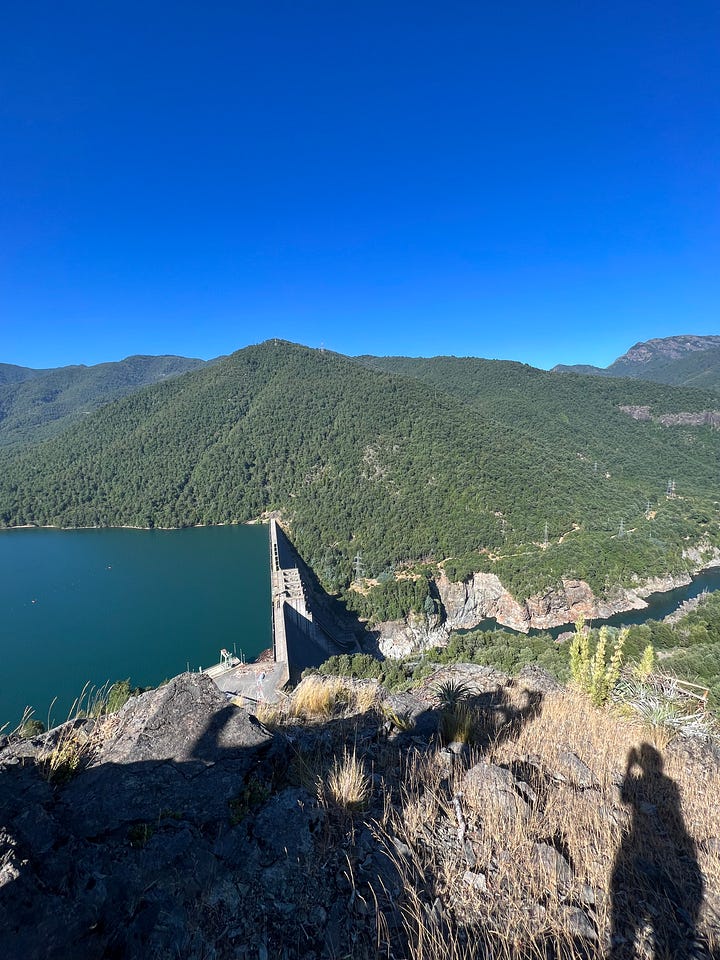
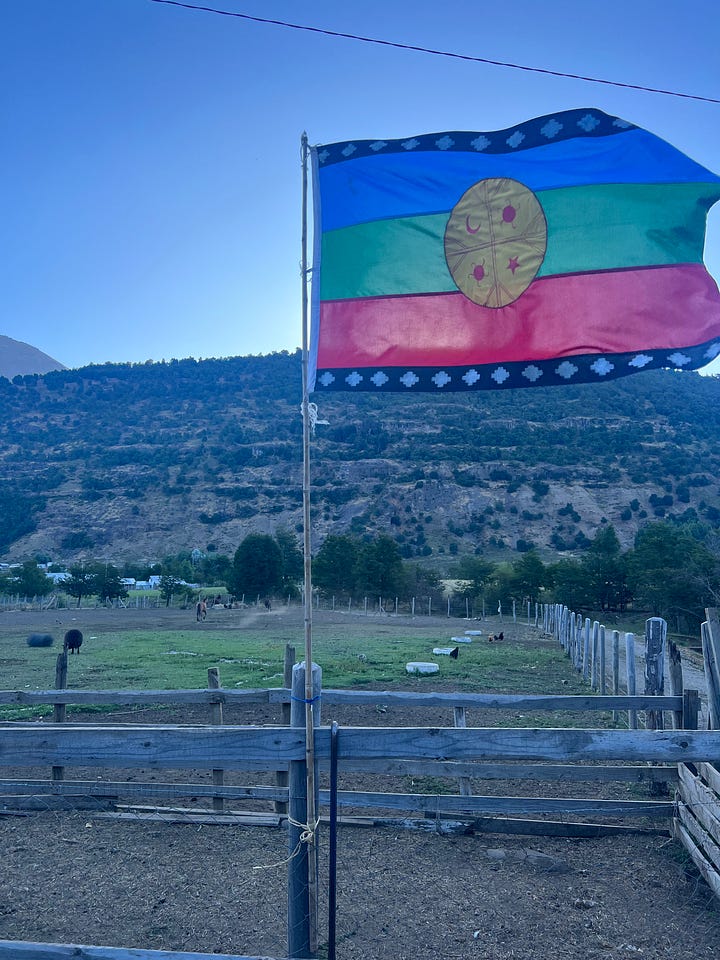
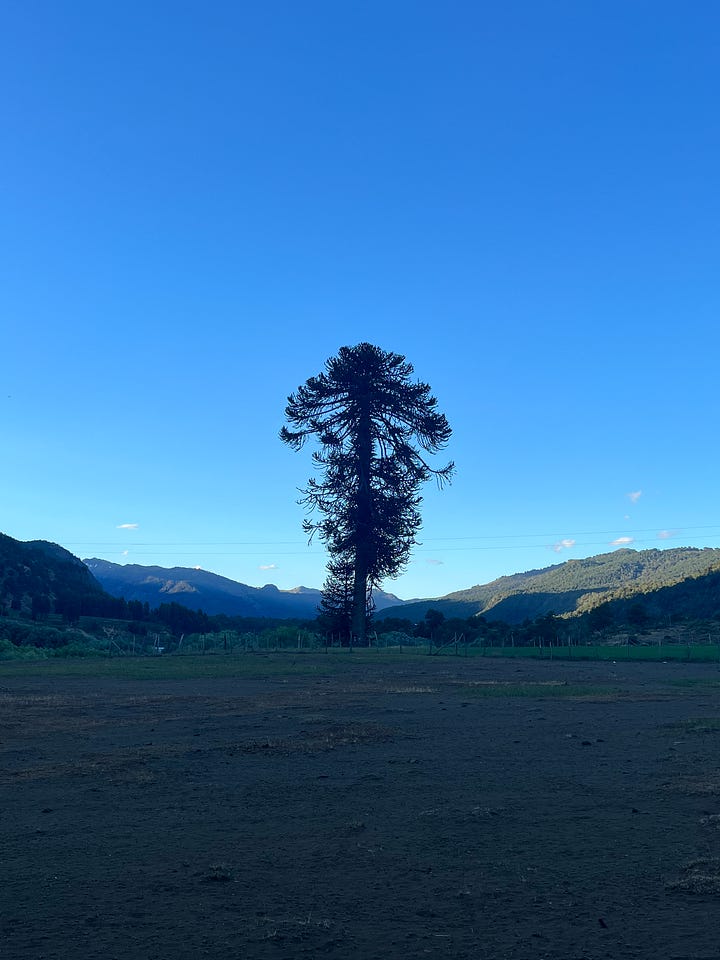
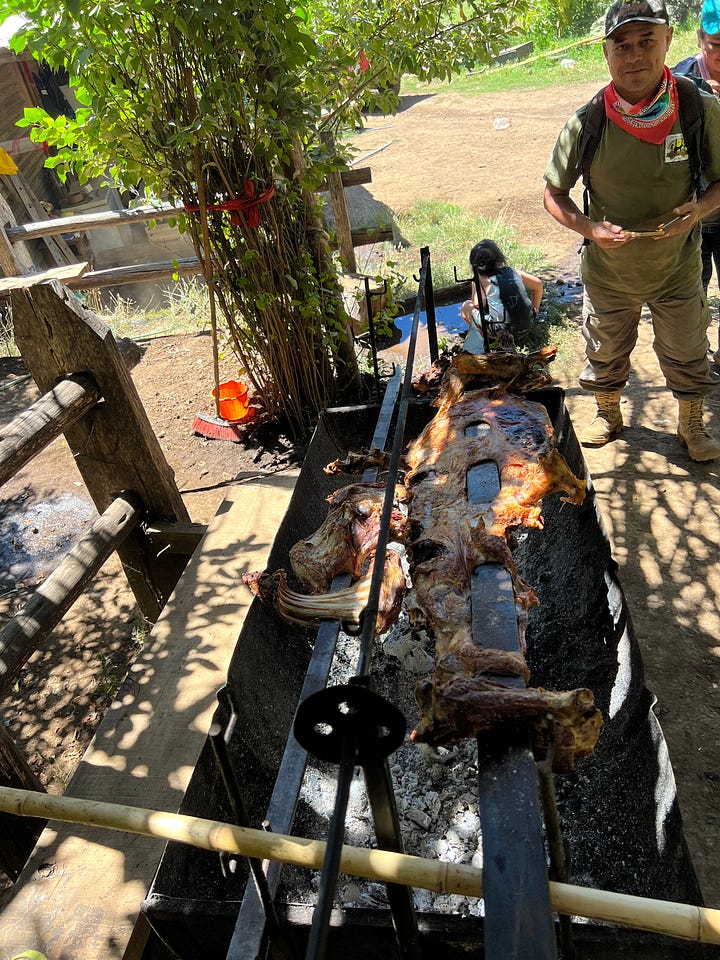
Many stories of shared experiences and struggles within river advocacy were reeled out below clear skies and asado smoke, filling long afternoons with the special kind of feeling that comes with being around storytelling and full plates. In our river time with the Bolivians, I was surprised by the shift in confidence I felt in myself while teaching and guiding them in the eddy and down the river. I saw the lines more clearly, knew where a student was likely to flip, and remembered to bring my water bottle with me and put sunscreen on my hands.
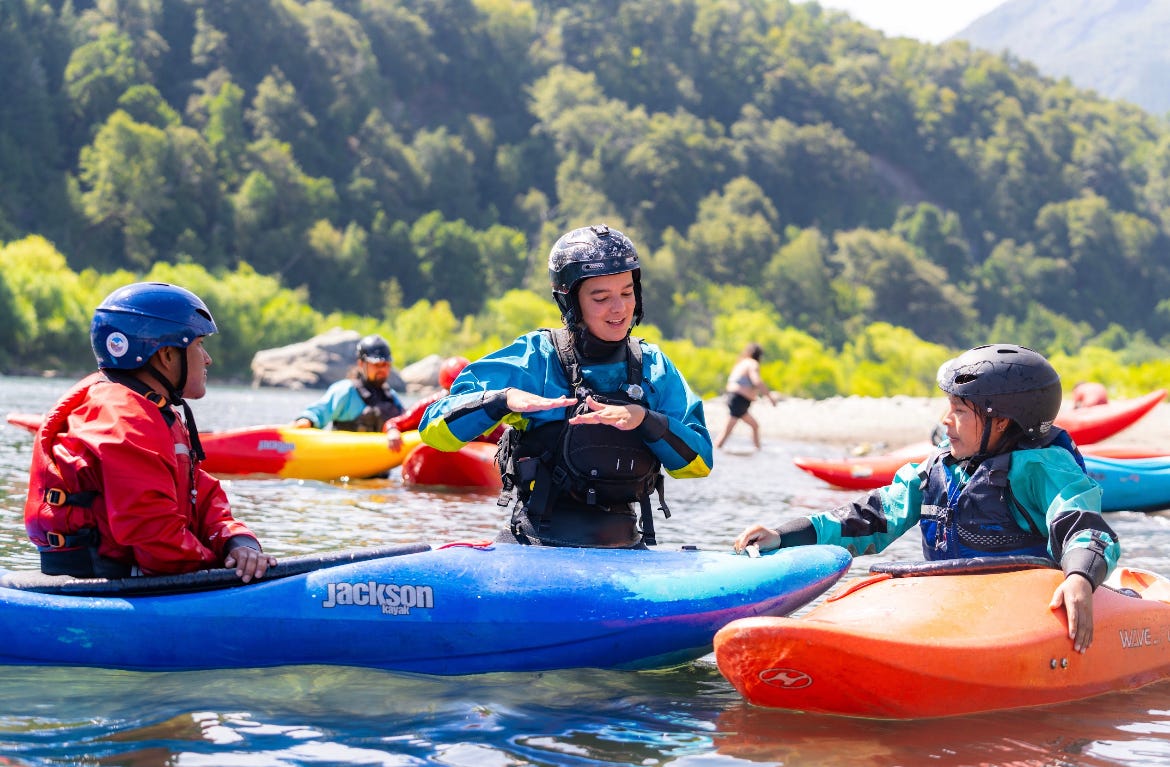
The program was also more challenging than Kayakimün, as the team was more tired than we had been at the beginning of the month, and teaching adults requires a different type of energy than teaching kids. I was still super proud to see the growth the participants showed on and off the river through their brainstorming sessions and roll practices, and it was a bittersweet goodbye as they started their lengthy trip back home. This program was full of discussion about what activism could look like on their rivers, as environmental defenders often face violence for their work in Latin America. Utilizing whitewater sport and harnessing the joy that comes with it has been scooped up by these participants as a way to speak up for their rivers that has more security than conventional forms of protest. It was humbling to meet and learn from these students, who have been fighting for their ancestral lands to remain unflooded by major hydroelectric projects while being exposed to mercury contamination by illegal gold mining activity in those same rivers. I have often heard it said that damage to land is damage to the people. But I hadn’t ever met someone my age with chronic pain because of mercury invading her body, or someone who’s home could very well be underwater due to imperial economic development within years. What I have always heard called environmental advocacy is a way of life for these students. Many of the people I know in environmental organizing circles– including myself– have the option to walk away or take a break from the work. And many– including myself– do. So the question for me has been reaffirmed: how can I align my work with the work other people are doing on the front lines to protect their home lands and waters? Environmental justice can look like a lot of things, but most importantly it needs to follow the vision and goals of the communities experiencing the injustices, the pollution, the ongoing colonial development of their lands and water. The last few weeks, it looked like gathering future community leaders in the Bolivian Amazon in a space that allowed them to discuss their visions and goals, try new things, and build up their networks of support.
Working with the Ríos to Rivers team felt like a dream for this year. It brought together the spread of things I’m feeling passionate about and allowed me to grow and learn while helping to foster growth and learning in the participants I was lucky to meet. One large area that I’ve felt a lot of change in is my own kayaking skills. As mentioned above, it felt weird to come into a kayaking instruction role without feeling super confident in my own paddling. Throughout the training week, free time and weekends during the programs, and our week off, the instructor team would paddle together. Sometimes the section we ran with the students, sometimes that section later in the evening when the dam had released water, drastically changing the river, and sometimes an entirely different river or section of the Biobío. I had a lot of kayaking firsts in the last six weeks; paddling shallower, smaller rivers that demand a different style of kayaking, learning new types of rolls, paddling class four rapids and drops, and feeling confident in my roll when I needed it most. The biggest shift was when joy really showed up alongside the nervousness I’ve felt in kayaks for so long. I did still have a decent amount of swims and got nervous a lot. Kayaking, with its classic complexity of most “extreme” or “outdoorsy” sports, is often seen as something involving a lot of ego, adrenaline, and uncalculated risk. This is true in places, but I feel really lucky to have been able to paddle with a crew that values learning, understands different comforts with risk, and bringing sour gummy worms while we scout a big rapid. The past six weeks of kayaking have let me push my comfort zone, do things I didn’t think I could, and learn how to be a better paddling partner. They have also shown me that I really want Lasik to avoid going down rapids with one eye closed to keep my contacts in.
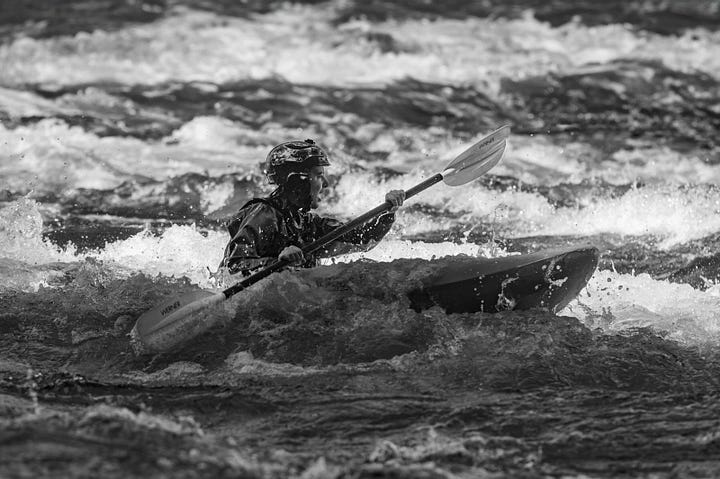

Whew! Thanks for sticking with a longer update! The days since leaving Chile and all it held for me have been full of restful solo time; this evening I swam in the lake and ate an orange while watching the sun race to the mountain ridge :) I’m hopping on a bike in the next couple days to bike-pack a bit over 100 miles south this week, really embracing the ~being a beginner and being bad at things~ moment!
Lots of love <3
Send me a photo of a little bird or bug you’ve seen recently!

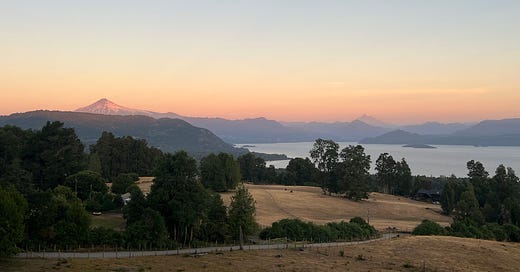




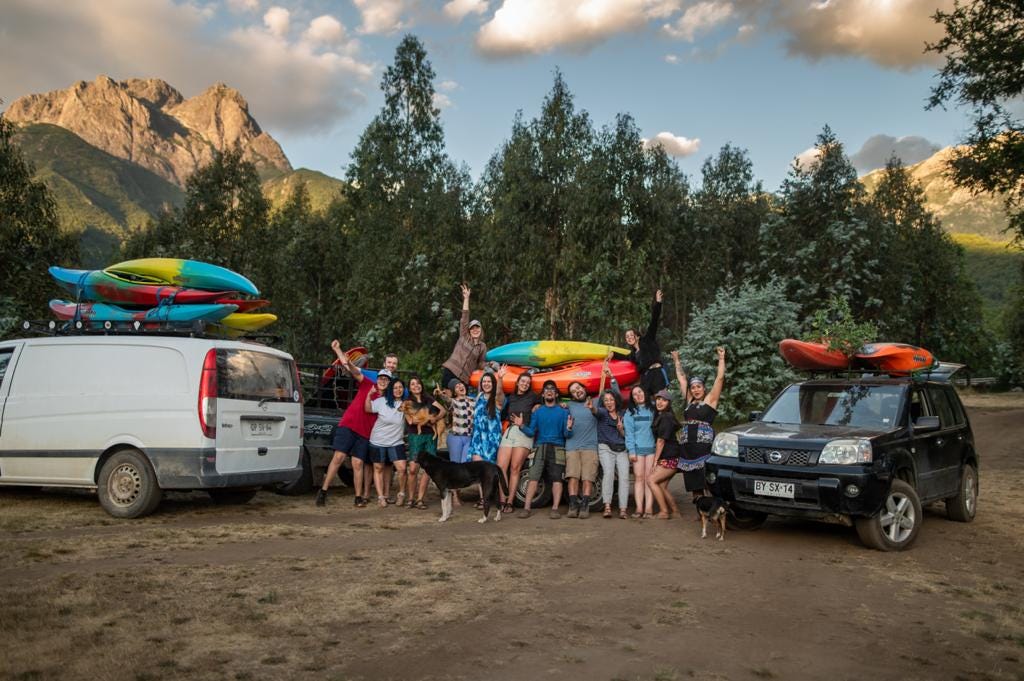

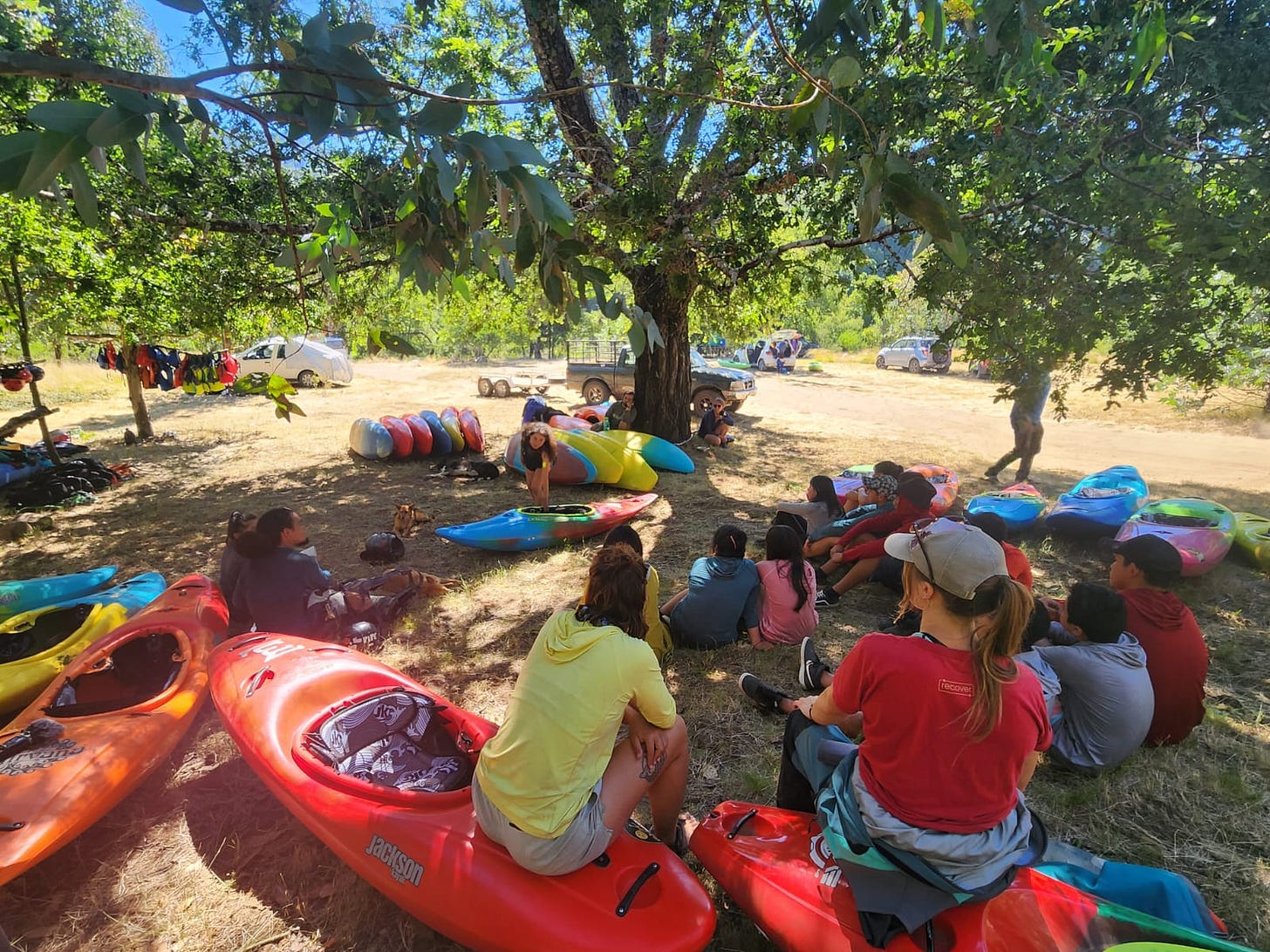
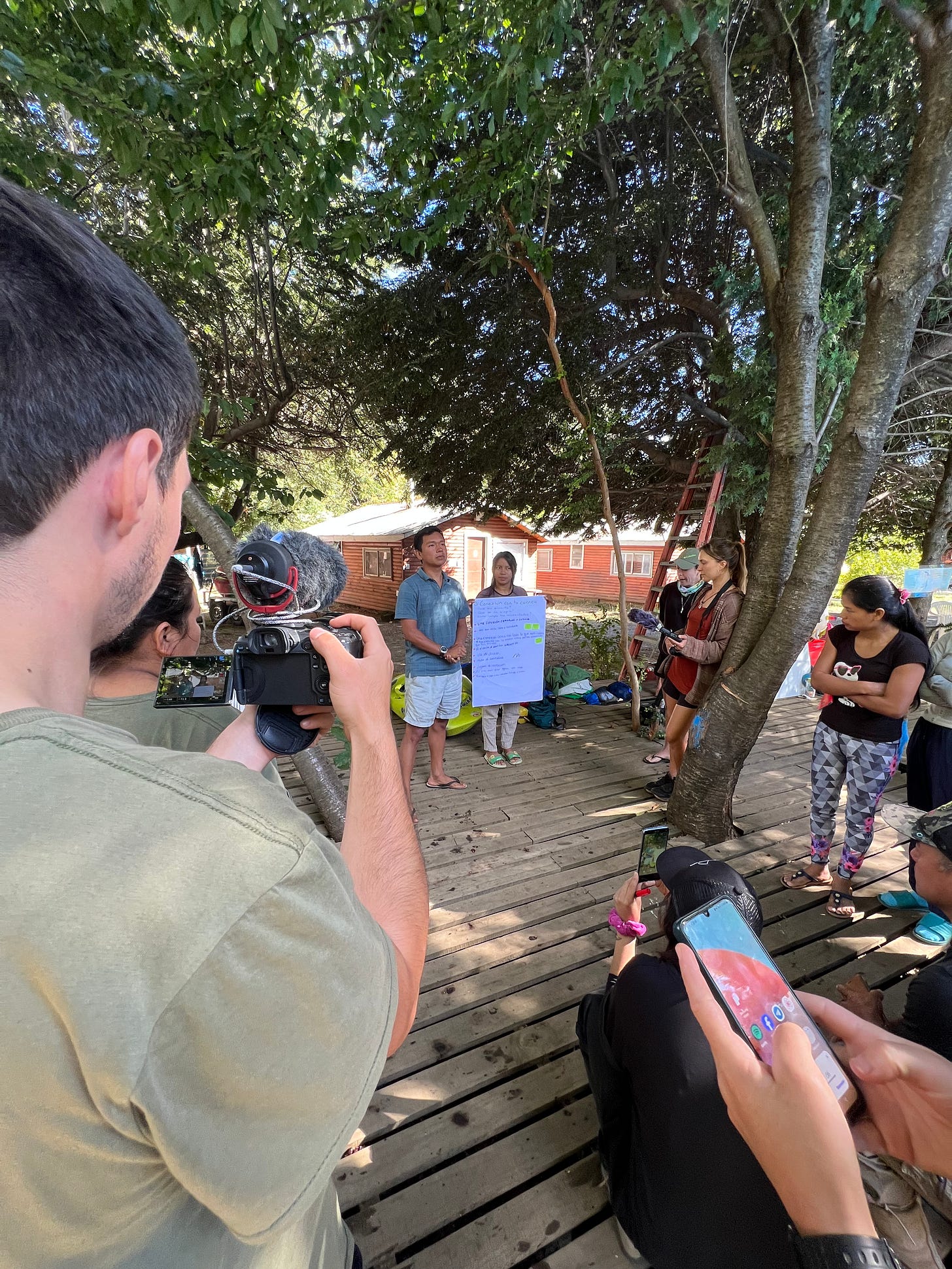
Wow Carly! Thank you for sharing these experiences! I saw Gabe today and he was out with Orcas yesterday. Today he "just" saw porpoises. I always ask if he has talked to you. I am amazed at the variety, depth and breadth of your adventures down there. Well done!!